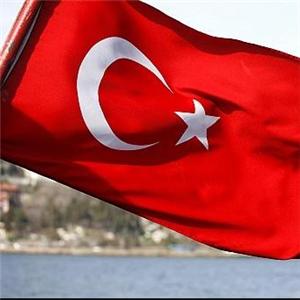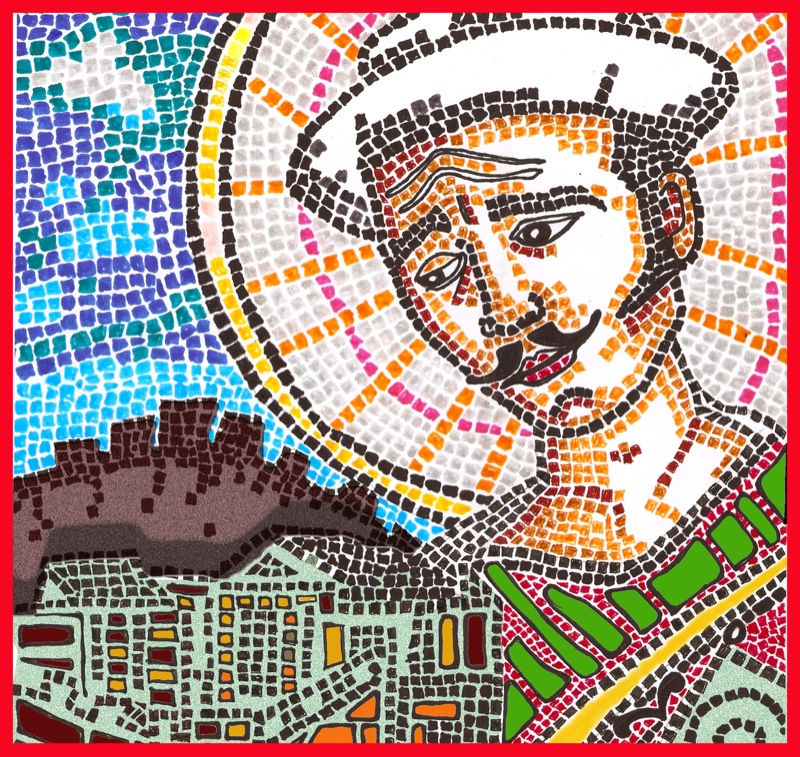|
||||
|
| 296 | ||
| aç açmak | to open, to open up | |
| Çiçekler sabahleyin açar. | The flowers open in the morning. (intransitive) | |
| Jack kapıyı açtı. | Jack opened the door. (transitive) | |
| Jack’e kapıyı açtırdıım. | I made (had) Jack open the door. (causative) | |
| Kapıyı açtırdığım. | I had the door opened. (causative) | |
| Kapı bilinmeyen bir kişi tarafından açıldı. | The door was opened by an unknown person. (passive) | |
| Hava açıldı (açtı). | The clouds scattered and the sun began to shine. (reflexive) | |
| Kapı, Jack’e açtırıldı. | Jack was made to open the door. (passive causative) | |
| al almak | to take (to buy, to get, to receive) | |
| alın alınmak | to be taken, to be received, to be bought | |
| Kitabı aldığım. |
I have taken (received, bought) the book. (transitive) I bought the book. |
|
| Kitabı satın aldırdığım. |
I (have) had the book bought. (causative) I had the book purchased. |
|
| 298 | ||
| Kitabı satın aldırttığım. |
I asked someone to have the book bought. (double causative). I had the book purchased. |
|
| Kitap satın alındı. |
The book has been bought. (passive) The book was purchased. |
|
| Kitabı satın aldırdığım. |
I have had the book bought. (causative) I had the book purchased. |
|
| Aldırma! | Never mind! (an expression) | |
| Elmalar Ahmet’e aldırıldı. | Ahmet was made to buy the apples. (passive causative) | |
| Elmaları Ahmet’e aldırdı. | She had Ahmet buy the apples. (causative) | |
| Bu elmalar geçen hafta alındı. | These apples were bought last week. (passive) | |
| Bu elmalar satın almaya değmez. | These apples are not worth buying. (infinitive) | |
| Yarın bana bir bilgisayar alınıyor. | A computer is going to be bought for me tomorrow. | |
| (O), sözlerimden alındı. | She was offended by what I said. (reflexive) | |
| anla anlamak | to understand | |
| anlaşmak | to understand each other | |
| anlaşılmak | to be understood | |
| Jack dersi anladı. | Jack understood the lesson. (transitive) | |
| Ders anlaşıldı. | The lesson has been understood. (passive) | |
| Onlar anlaştılar. | They (have) reached an agreement. (reciprocal) | |
| anlat anlatmak | to narrate, to tell | |
| Jack bize bir masal anlattı. | Jack told us a story. (transitive) | |
| Öğretmen masalı Ahmet’e anlattırdı. | The teacher made (had) Ahmet tell the story. (causative) | |
| Masalı anlattırdığım. | I had the story told. (causative) | |
| Masal dün anlatıldı. | The story was told yesterday. (passive) | |
| Masal Ahmet’e anlattırıldı. | Ahmet was made to tell the story. (passive causative) | |
| Öğretmen bir konu anlatıyor (öğretiyor). | The teacher is teaching a subject. (transitive) | |
| art artmak | to increase | |
| Hız arttı. | The speed increased. (intransitive) | |
| Hızı artırdı. | He increased the speed. (transitive) | |
| Hız artırıldı. | The speed has been increased. (passive) | |
| 300 | ||
| Ona hızını arttırttı. | He made him increase his speed. (causative) | |
| Hızı arttırttı. | He had the speed increased. (causative) | |
| Hız Jack’e artırtıldı. | Jack was made to increase the speed. (passive causative) | |
| başla başlamak | to begin, to start | |
| Oyun başladı. | The game (has) started. (intransitive) | |
| Hakem oyunu başlattı. | The referee started the game. (transitive) | |
| Hakem oyunu Ahmet’e başlattı. | The referee made Ahmet start the game. (causative) | |
| Oyun Ahmet’e başlatıldı. | Ahmet was made to start the game. (passive causative) | |
| Oyun başlatıldı. | The game was started. (by someone) (passive) | |
| Oyuna başlanandı. | The game was started. (passive shaped intransitive verb) | |
| bat batmak | to sink, to sink into | |
| İkinci Dünya Savaşında birçok gemi battı. | A lot of ships sank during The Second World War. (intransitive) | |
| 301 | ||
| İkinci Dünya Savaşında çok gemi batırdılar. | They sank a lot of ships during The Second World War. (transitive) | |
| Savaşta birçok gemi batırıldı. | A lot of ships were sunk during the war. (passive) | |
| (O), parmağına bir iğne batırdı. | She stuck a needle into her finger. (transitive) | |
| Parmağıma iğne battı. |
A needle stuck into my finger. (intransitive) A needle pricked my finger. |
|
| bul bulmak | to find, to discover | |
| Yüzüğünü buldu. | She has found her ring. (transitive) | |
| Yüzüğünü kocasına buldurdu. | She got her husband to find her ring. (causative) | |
| Yüzük kocasına bulduruldu. | Her husband was made to find the ring. (passive causative) | |
| Yüzükünü buldurdu. | She had her ring found. (causative) | |
| Yüzükü bulundu. | Her ring has been found. (passive) | |
| çal çalmak | to steal; to play (piano) | |
| Birisi onun çantasını çaldı. | Somebody stole her handbag. (transitive) | |
| 302 | ||
| Çantasını çaldırdı. | She had her handbag stolen. (causative) | |
| Geçen hafta onun çantası çalındı. | Her handbag was stolen last week. (passive) | |
| Jack piyano çalabilir. | Jack can play the piano. (transitive) | |
| Hakem düdüğünü çaldı. | The referee blew his whistle. (transitive) | |
| çarp çarpmak | to hit, to strike, to bump | |
| Top pencereye çarptı. |
The ball hit the window.. (Turkish intransitive; English transitive) |
|
| Kâlpim senin için çarpıyor. | My heart is beating for you. (intransitive) | |
| Arabasını elektrik direğine çarptı. | She hit her car to a lamppost. (intransitive) | |
| Kapıyı çarptı. | He slammed the door. (transitive) | |
| Kapı çarpıldı. | The door was slammed. (Passive) | |
| İki kamyon çarpıştı. | Two lorries collided. (reciprocal) | |
| 303 | ||
| çalış çalışmak | to work | |
| Almanya’da çalışıyor. | He is working in Germany. (intransitive) | |
| Motoru çalıştıramadı. | He couldn’t start the engine. (transitive) | |
| Karısını çalıştıramıyor. | He doesn’t let his wife work. (causative) | |
| Eskiden otomobil motorları elle çalıştırılırdı. | In the past car engines used to be manually started. (passive) | |
| Bu fabrikada kasksız çalışılmaz. |
It is forbidden (dangerous) to work without helmets in this factory. (passive shaped intransitive verb) |
|
| çatla çatlamak | to crack, to split | |
| Bardak çatladı. | The glass (has) cracked. (intransitive) | |
| Kaynar su bardağı çatlattı. | The boiling water cracked the glass. (transitive) | |
| Bardağı sen çatlattığın. |
You made the glass crack. (causative) (You cracked the glass.) |
|
| Bardak çatlatıldı. | The glass was cracked. (passive) | |
| 303 | ||
| Çek çekmek | to pull, to draw, to haul | |
| çekin çekinmek | to fear, to be reluctant to do | |
| Bu baca iyi çeker. | This chimney draws well. (intransitive) | |
| Annesine çekmiş. | She seems to have taken after her mother. (intransitive) | |
| Arabayı iki at çekiyordu. | Two horses were pulling the cart. (transitive) | |
| Kılıcını çekti. | He drew his sword. (transitive) | |
| O acı çekiyor. | He is suffering. (transitive) | |
| Eskiden insanlar kuyulardan su çekerdi. | People used to draw water from wells in the past. (transitive) | |
| Teklif benim dikkatimi çekti. | The proposal attracted my attention. (transitive) | |
| Arabam çekildi. | My car has been towed away. (passive) | |
| Arabamı çektirdiğim. | I had my car towed. (causative) | |
| Bir dişimi çektirdiğim. | I had a tooth pulled out. (causative) | |
| O çekiniyor. | She is avoiding. (reflexive) (*She is pulling herself) | |
| Onlar çekişiyorlar. | They are struggling with each other. (reciprocal) | |
| Can çekişiyor. | He is in the death agony. (reciprocal) | |
| 304 |

